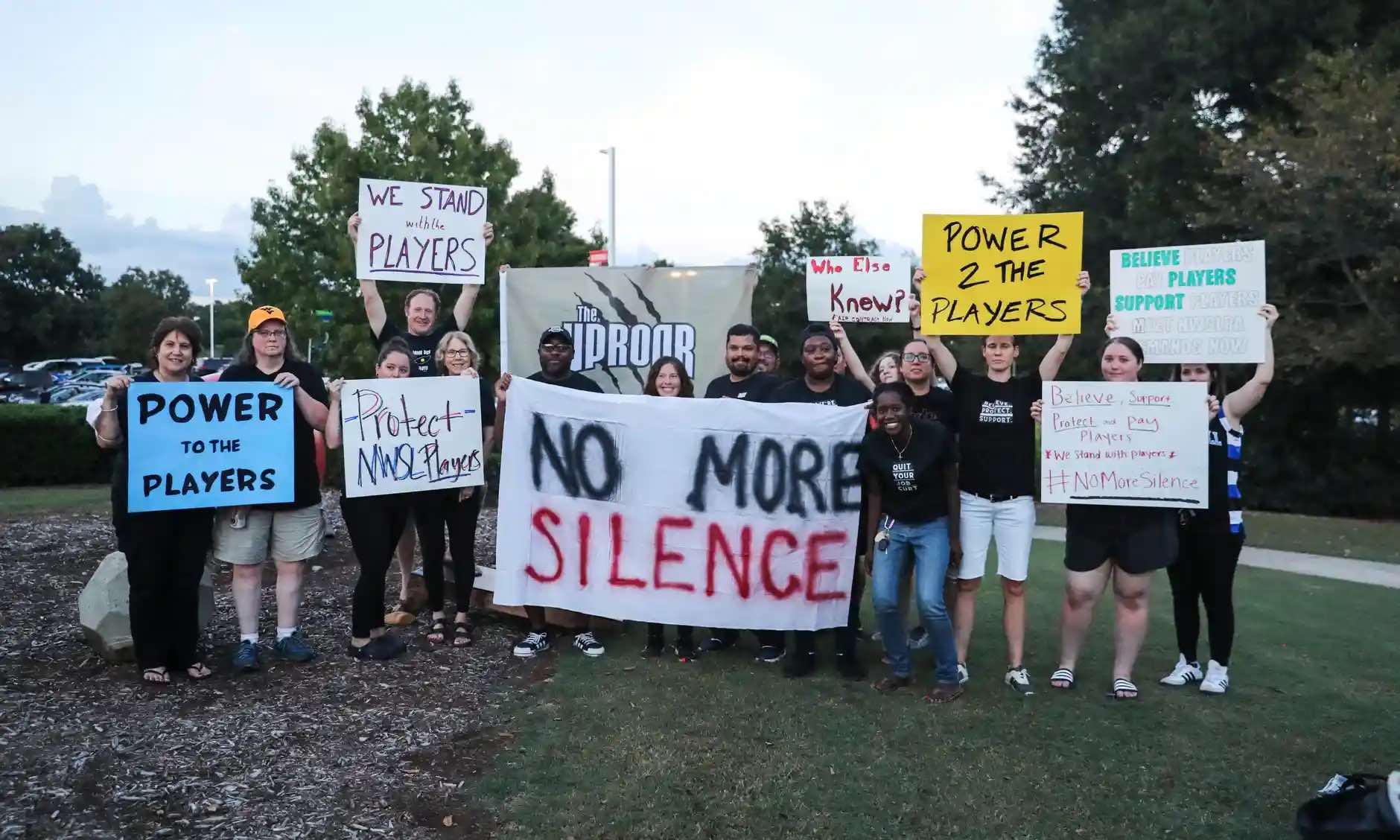
c/o Jaylynn Nash, USA Today Sports
Once again, the world of U.S. women’s soccer has been rocked by scandal.
For the past several years, players on the U.S. Women’s National Soccer team have been engaged in a public legal fight with the United States Soccer Federation over allegations of gender discrimination. Members of the women’s team are paid less than their counterparts on the men’s national team, despite having much more success on the international level.
But this past month, the team has been making headlines for different reasons: allegations of sexual misconduct.
In a report published in The Athletic on Sept. 30, former National Women’s Soccer League (NWSL) players Meleana “Mana” Shim and Sinead Farrelly accused former North Carolina Courage head coach Paul Riley of verbal abuse and sexual coercion. These allegations spanned over a decade and across multiple teams. Riley denied the allegations against him to The Athletic.
Following the article’s publication, Riley was let go from his position as the head coach of the Courage. The commissioner of the NWSL, Lisa Baird, resigned the next day.
Shim initially filed a complaint against Riley in 2015, which prompted the Portland Thorns to decide not to renew his contract as the team’s head coach. However, several months later, Riley was hired by the Western New York Flash (which later relocated and became the North Carolina Courage), demonstrating a clear failure on the league’s part to keep their players safe.
The incident sparked larger debates about the culture of the NWSL and their lack of commitment to protecting their players from abuse. In the wake of these allegations, FIFA, the U.S. Soccer Federation, and the NWSL have all announced that they are opening investigations.
The NWSL also chose to cancel games the weekend following the report’s release.
A number of league stars, including Alex Morgan and Megan Rapinoe, have spoken out in support of the players and expressed their outrage over the allegations, demanding that the NWSL take action to better protect players in the future.
While I am elated to see that these players are finally getting some semblance of justice, and Paul Riley’s gross misconduct is finally being exposed, I can’t help but think that this victory feels hollow at best. Riley’s abusive behavior was able to fester in the NWSL unchecked for so long, who’s to say there aren’t others like him in the league still unexposed?
This problem is hardly unique to the NWSL, or to soccer generally. Similar scandals occurred in the wake of several other recently reported instances of sexual misconduct in women’s sports, most notably in the world of women’s gymnastics, where hundreds of athletes reported suffering sexual abuse from USA Gymnastics doctor Larry Nassar.
This issue is a systemic one that affects female athletes of virtually every sport. And while this reckoning is largely concerned with women’s professional sports, there is no denying the implications of such a scandal on all levels of female sports. While studies into sexual abuse in athletics remain limited, current research suggests that between 2% and 8% of both minor and young adult athletes are victims of sexual assault, and that female athletes are more likely to be sexually abused than their male counterparts.
The implications of this issue are undeniably severe. In addition to the fact that it is clearly deplorable when young female athletes experience sexual abuse from coaches and other sports professionals, it discourages them from participating and developing themselves as athletes.
And when young women and girls see how such abusive behaviors have been allowed to occur at the professional level, that only further contributes to the feelings of helplessness or being silenced they may feel. After all, if sexual misconduct can occur in these highly regulated leagues for decades with no intervention, then who is going to help young women facing the same mistreatment at collegiate and youth levels, where the power imbalances between younger athletes and coaches are often far greater?
While the future for the NWSL and women’s sports may appear bleak, there may be cause for hope. Players and supporters alike continue to call out power structures that have allowed such abuse, specifically that these leagues are run and controlled largely by cisgender, heterosexual white men.
“Women’s sports, traditionally, have been built by men, and are also trying to use the structures of men’s sports….That leads to problems in a major way,” Meg Linehan, a reporter who broke the Paul Riley abuse scandal, said.
Currently, only one of the NWSL’s ten teams has a female head coach. But in 2022, Angel City FC and the San Diego NWSL team are both expected to join the league with female head coaches. Hopefully, other teams will soon follow suit and hire more female coaching staff, a small step towards necessary systemic change to make women’s sports more equitable and safe for female athletes.
Erin Byerly can be reached at ebyerly@wesleyan.edu